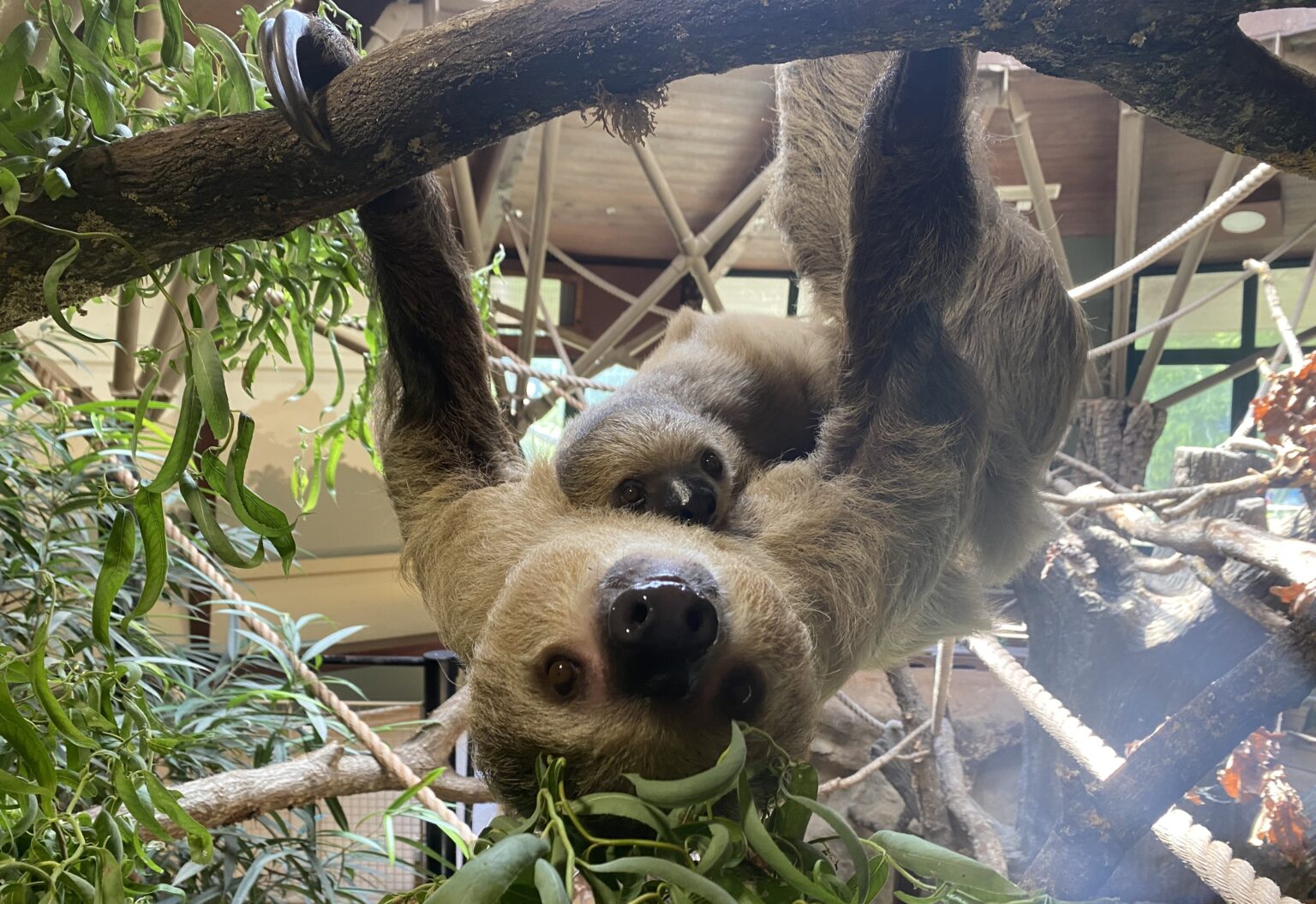A baby sloth born in January has finally had its gender revealed, thanks to a DNA test from a hair follicle.
Determining the sex of a Linne’s two toed sloth (Choloepus didactylus) is no easy task, so the team at Jersey Zoo worked with a specialist lab in Germany who tested a hair follicle to determine the gender.
And with the results of the test back in, the cute yongster was confirmed as being female, also allowing the zoo to finally name her.
READ MORE: Foul-mouthed parrot who hates e-cigarettes tells guests who are vaping to ‘p*ss off’
Jemma, who was born to parents Terry (mum) and Rio (dad) on the 15th January 2025, is said to be doing well.
A spokesperson for the zoo told What’s The Jam: “We are taking great delight in watching Jemma grow into a more curious, independent, and strong sloth by the day – allowing Mum Terry the odd, and much deserved break.
“Both Terry and Jemma are doing well, enjoying the summer’s bountiful offering of various leaves to munch on – willow tree being a firm favourite.”
Sadly, Jemma’s father Rio, passed away on Thursday 23 January, shortly after the arrival of his daughter.
Rio, who was 23 years old, arrived at Jersey Zoo in 2022 from Bristol Zoo, where he spent most of his life, having been born at Amazon World Zoo on the Isle of Wight.
Despite pre-existing health conditions, including dental and kidney issues, Rio’s health stabilised under the care provided by Jersey Zoo’s dedicated Mammal team and Veterinary Services Department, who kept a close eye on him, carefully monitoring and managing his health and welfare.
Prior to Jemma’s birth, Rio’s health began to decline. Following a thorough review, the difficult decision was made to euthanise him after his dental condition significantly worsened.
“I’m sure Rio will be missed by staff, volunteers and visitors. Despite his ongoing health challenges, the team have done an admirable job caring for Rio during his final years,” said Ben Matthews, Curator of Mammals at Jersey Zoo.
“If we reflect on the part the animals in our care play in the wider picture of conservation, we can take solace in the fact that Rio’s important genes have been passed on with the arrival of his offspring. It’s truly a poignant reminder of why we do what we do.”
The arrival and development of young Jemma highlights the critical role zoos play in conserving species and contributing to their future survival.
Jersey Zoo remains steadfast in its mission to save species from extinction and inspire people to value and care for the natural world.
READ MORE: Foul-mouthed parrot who hates e-cigarettes tells guests who are vaping to ‘p*ss off’
